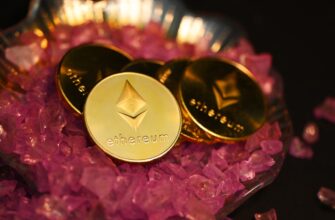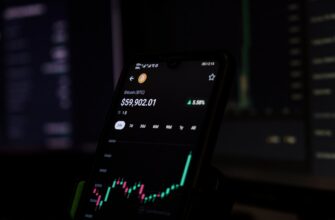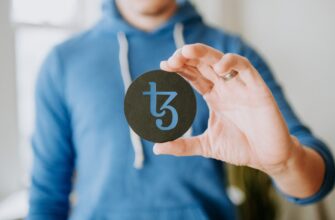- What Is a Cryptocurrency DEX? The Future of Trading
- How Do Cryptocurrency DEXs Actually Work?
- Top 5 Benefits of Using a DEX
- Leading Cryptocurrency DEX Platforms to Know in 2024
- Understanding the Risks: DEX Challenges
- How to Use a Cryptocurrency DEX: Simple 4-Step Guide
- The Future of DEXs: Trends Shaping Decentralized Trading
- Cryptocurrency DEX FAQ
- Are DEXs Legal?
- Can I Use a DEX Without Gas Fees?
- What’s the Difference Between DEX and CEX?
- How Do DEXs Make Money?
What Is a Cryptocurrency DEX? The Future of Trading
A cryptocurrency DEX (Decentralized Exchange) is a peer-to-peer platform allowing direct crypto trading without intermediaries. Unlike centralized exchanges like Coinbase or Binance, DEXs operate on blockchain technology, giving users full control over their funds. This innovation addresses key pain points in crypto: security risks from exchange hacks, privacy concerns, and censorship. As DeFi (Decentralized Finance) booms, DEXs have surged in popularity—with platforms like Uniswap processing billions in monthly volume.
How Do Cryptocurrency DEXs Actually Work?
DEXs leverage smart contracts—self-executing code on blockchains like Ethereum—to automate trades. Here’s the core process:
- No Central Custody: Users trade directly from personal wallets (e.g., MetaMask), eliminating third-party control of assets.
- Automated Market Makers (AMMs): Most modern DEXs use AMMs instead of order books. Liquidity pools (funds supplied by users) enable instant swaps based on algorithmic pricing.
- On-Chain Settlement: Transactions settle directly on the blockchain, visible to all but pseudonymous.
Top 5 Benefits of Using a DEX
- Enhanced Security: No central point of failure. Hackers can’t drain a DEX’s “hot wallet” since users hold their keys.
- Privacy Protection: No KYC requirements. Trade anonymously with just a crypto wallet.
- Censorship Resistance: Governments can’t freeze accounts or block access to decentralized protocols.
- Access to New Tokens: List tokens instantly without gatekeepers—ideal for early-stage projects.
- Earn Passive Income: Provide liquidity to pools and earn trading fees (e.g., 0.3% per Uniswap swap).
Leading Cryptocurrency DEX Platforms to Know in 2024
Explore these dominant players:
- Uniswap (Ethereum): The pioneer AMM DEX, handling ~60% of DEX volume. Simple swap interface and vast token selection.
- PancakeSwap (BNB Chain): Low-favorite alternative with farming rewards and NFT integrations.
- Curve Finance (Multi-Chain): Optimized for stablecoin swaps with minimal slippage.
- dYdX (Layer-2): Specializes in decentralized perpetual trading with leverage.
Understanding the Risks: DEX Challenges
Despite advantages, DEXs carry unique risks:
- Smart Contract Vulnerabilities: Code exploits can lead to fund losses (e.g., 2021 $611M Poly Network hack).
- Impermanent Loss: Liquidity providers may lose value if pool token prices diverge significantly.
- User Error Responsibility: No customer support. Wrong addresses or gas fees are irreversible.
- Scalability Issues: High Ethereum gas fees during congestion make small trades impractical.
How to Use a Cryptocurrency DEX: Simple 4-Step Guide
- Set Up a Wallet: Install MetaMask or Trust Wallet. Secure your seed phrase offline.
- Fund Your Wallet: Transfer crypto (e.g., ETH for gas fees) from an exchange or another wallet.
- Connect to a DEX: Visit the DEX’s site (e.g., app.uniswap.org), link your wallet, and approve the connection.
- Trade or Provide Liquidity: Swap tokens instantly or deposit pairs into a liquidity pool to earn fees.
The Future of DEXs: Trends Shaping Decentralized Trading
DEX evolution is accelerating with:
- Cross-Chain Swaps: Protocols like Thorchain enabling direct Bitcoin-to-Ethereum trades.
- Layer-2 Scaling: Solutions like Arbitrum reducing fees and speeding up transactions.
- Regulatory Adaptation: Increasing compliance without compromising decentralization (e.g., DEX aggregators).
- Institutional Entry: Hedge funds using DEXs for OTC-like large trades via “whale wallets.”
Cryptocurrency DEX FAQ
Are DEXs Legal?
Yes, but regulations vary. The U.S. SEC scrutinizes DEX tokens as securities, but platform operation remains legal in most jurisdictions. Always check local laws.
Can I Use a DEX Without Gas Fees?
No—blockchain transactions require gas fees. However, Layer-2 DEXs like Loopring reduce fees by 90% compared to Ethereum mainnet.
What’s the Difference Between DEX and CEX?
CEXs (Centralized Exchanges) act as custodians, requiring KYC and controlling user funds. DEXs facilitate non-custodial, automated trading via smart contracts.
How Do DEXs Make Money?
Most charge a 0.05–1% swap fee distributed to liquidity providers. Some native tokens (e.g., UNI) also capture value via governance.








